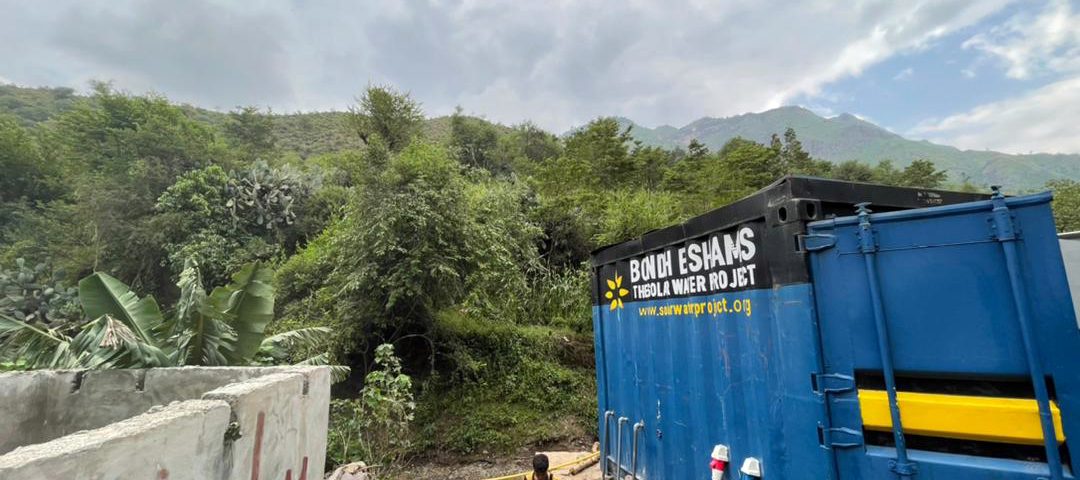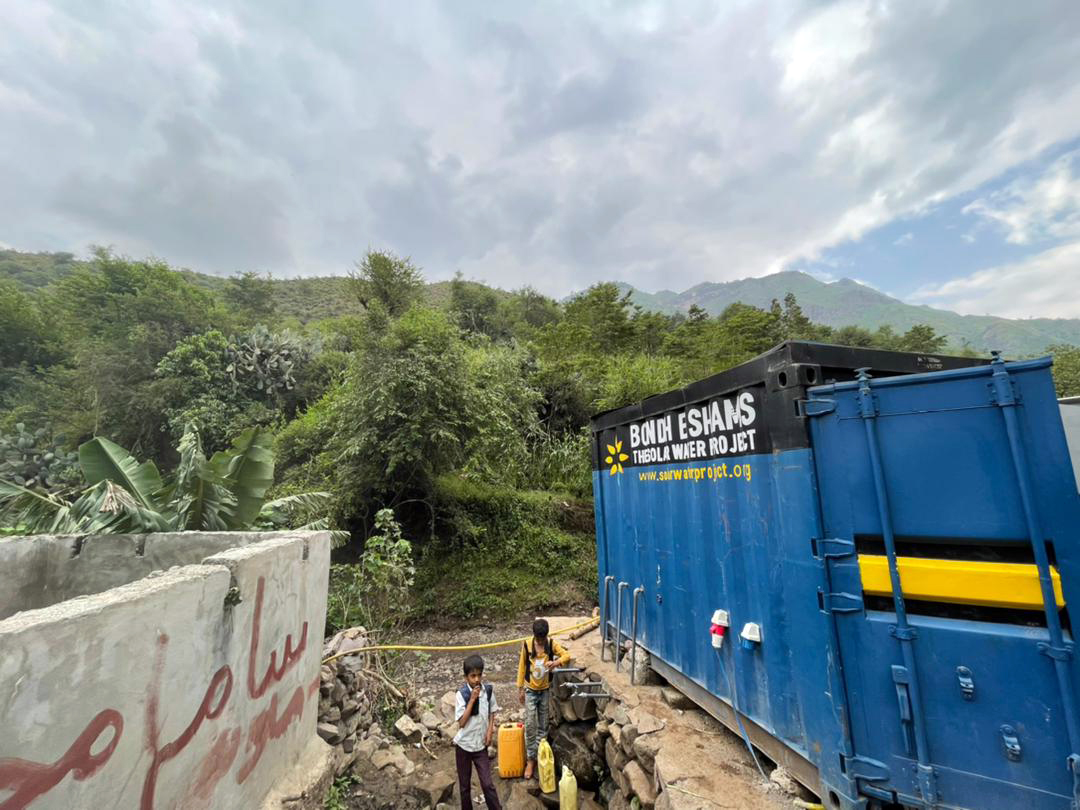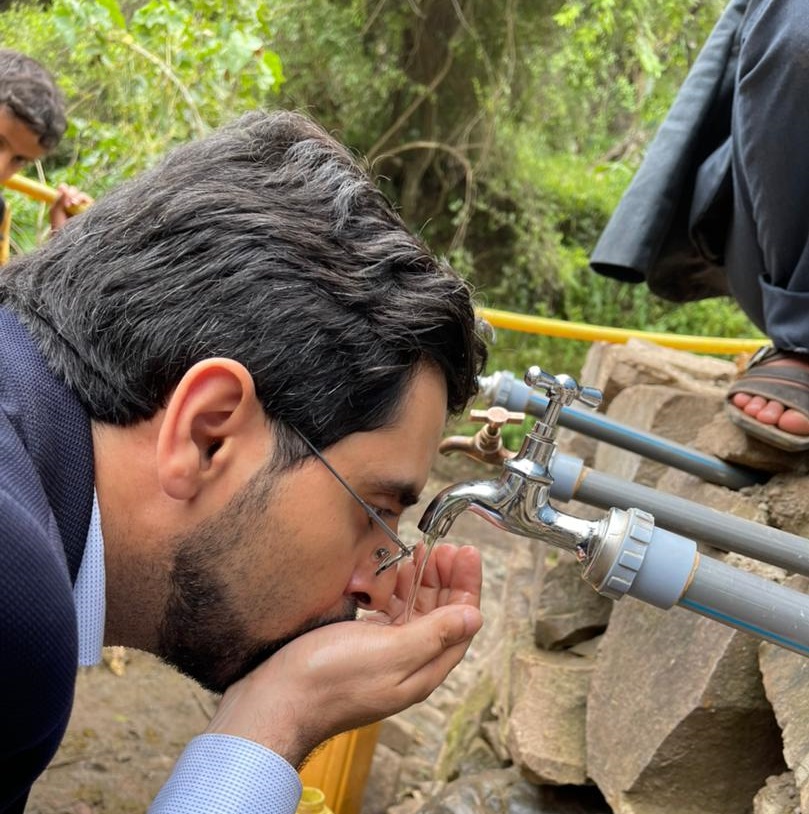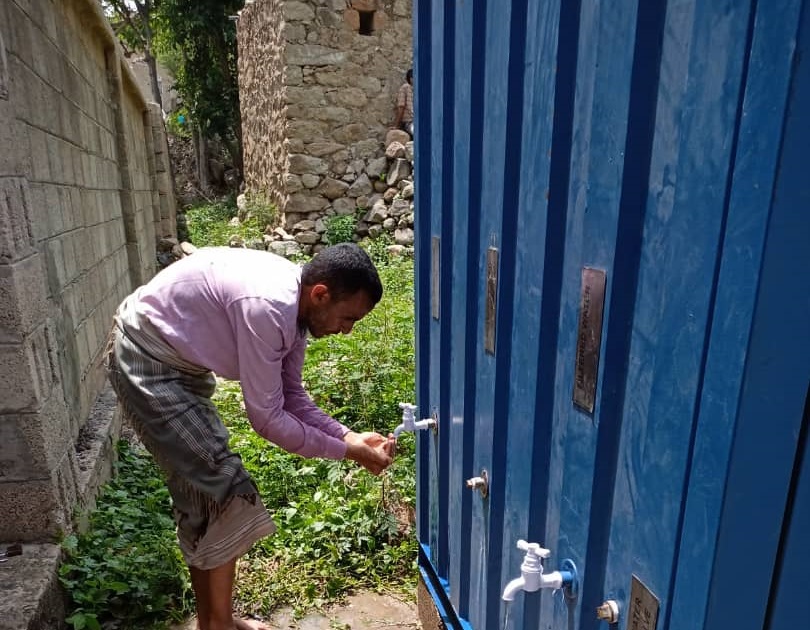
Press release: New Study Reveals Yemen War Dynamics – Retaliation and Oil Prices Drive Coalition Airstrikes
July 26, 2021
From Destruction to Innovation – EADP Study Shows How War Impacts Hospital Energy Supply
March 9, 2022First OASIS Project Successful: EADP and Bondh-e-Shams Bring Clean Water to Rural Yemen
EADP’s efforts to promote clean energy and water in the Middle East have reached a new milestone. In a plot project, our first two OASIS boxes have successfully reached their respective destinations in Ibb and Taiz, Yemen. OASIS is an innovative, durable, and solar-powered mobile system for water pumping, filtration, and storage. It was developed and built by Bondh E Shams – the Solar Water Project –, a British-Pakistani organisation awarded the Goldman Sachs Analyst Impact Fund Grant. OASIS boxes already supply sites in Pakistan and South Sudan.
The OASIS boxes made a long journey, including four countries, more than 5,000 km, and a literal warzone. Produced in Islamabad, the boxes were transported to the Pakistani coast city Karachi, from where the boxes travelled via Dubai to the Omani port of Salalah. From there on, the boxes continued their journeys on lorries, crossing the Yemeni border, and eventually finishing their journeys. After the boxes’ arrival in August, local water engineers set the stations up, conducted final tests, and cleared the stations for operation.
Since then, our station in rural Ibb has been supplying three entire villages - more than 400 families - with clean water. The station in Taiz is currently undergoing an upgrade and will soon be back to providing water for another 300 families. Local initiatives organise water distribution and system maintenance in close collaboration and with the support of EADP and Bond E Shams.
We are indebted to our invaluable donors, who chose to become part of our mission. For the project, EADP has raised more than $US 20,000 in addition to funding from our partners at Bondh E Shams. The pilot – a success story despite the hardship of war and import restrictions – has already been embraced by stakeholders, including the Yemeni Ministry of Water. EADP will continue to work tirelessly for sustainable development in the Middle East and looks forward to future OASIS projects.




